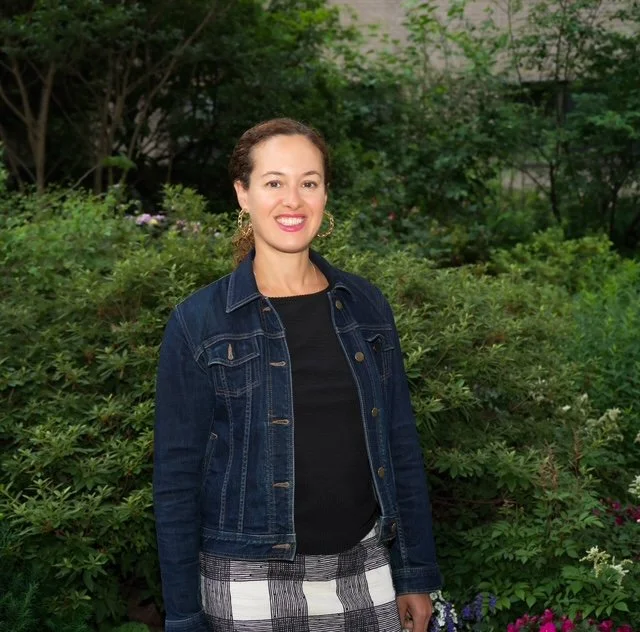Trauma Therapy NYC
Find Safety and Connection In Your Relationships
TRAUMA THERAPY IN NEW YORK FOR HEALING IN RELATIONSHIPS
When Closeness Feels Unsafe or Risky
You wake up to a message from someone you used to care about. It’s simple, “thinking of you”, but it lands heavy. Part of you wants to respond right away. Another part wants to shut it down before it leads anywhere.
You crave connection, but it often feels complicated. Even small things like a pause in a text, a change in tone, can make your stomach drop. You tell yourself not to overthink it, but your body already has.
Throughout the day, you do what you always do: stay composed, kind, reliable. You smooth things over, anticipate what others need, keep everything “fine.” From the outside, you seem grounded. Inside, you’re tired from keeping the peace and tired of wondering why it still feels so lonely.
You know the patterns: the people-pleasing, the second-guessing, the pulling away. You can explain them, even trace where they started. But awareness hasn’t been enough to change them. The past relationships that have hurt you still keep you from feeling close to anyone today.
You just want to feel safe again, safe being in relationships, safe being known, and safe being yourself.
That’s where trauma therapy in NYC can help.
TRAUMA THERAPY: HOW IT HELPS YOU REBUILD SAFETY AND CONFIDENCE
In our work together, we slow things down and listen to what your inner world is trying to tell you. I’ll help you build a relationship with the parts that protect, perform, or please so they can finally relax.
This is a powerful journey that you are about to embark on, and it all begins with a free consultation to discuss your own path to healing through trauma therapy.
Trauma Therapy helps you
Restore safety and trust
Reclaim your power and voice
Understand your story
Regulate your body and emotions
Create lasting change
If you’re longing for more steadiness, connection, and trust in yourself, I’d be honored to support you.
I’m Hilary, a Trauma Therapist in NYC
As a trauma therapist in New York, I specialize in anxiety and trauma, the subtle, lingering wounds that make it hard to feel secure, seen, or connected, even when life looks “together” on the outside.
Many of my clients are high-achieving adults who care deeply about their relationships yet find themselves repeating familiar patterns: overanalyzing, people-pleasing, or pulling away when things start to feel too close. They’ve often done therapy before and understand why they struggle, but still don’t feel the lasting safety or ease they’re longing for.
Clients describe me as calm, steady, and deeply attentive. I listen closely, notice what’s unspoken, and offer guidance that’s compassionate and clear. My approach is collaborative and paced to feel safe, we move at a rhythm that respects both your insight and your nervous system.
Reach out to schedule a 15-minute consultation to see if we are a good fit.

You Don’t Have to Keep Repeating Old Patterns Alone
If you’ve been doing the inner work but still feel unseen, guarded, or anxious in connection, therapy can be a space to heal what keeps you on edge and rediscover the part of you that knows how to trust again.
You deserve relationships that feel safe, steady, and real. Book a free consult for trauma therapy in NY.
Frequently Asked Questions about Trauma Therapy New York
-
Relationship trauma refers to the emotional impact of repeated hurt, neglect, betrayal, or invalidation in close relationships (romantic, parental, friendship) that leaves lingering wounds—even after the relationship ends. It can affect how you trust, feel safe, or show up in new relationships.
-
Relationship trauma therapy helps you understand how early experiences and past relationships continue to live in the body and shape how you connect, respond, and protect yourself in the present. When closeness feels unsafe or you find yourself repeating familiar patterns—pulling away, over-giving, or feeling unseen—therapy can help you notice these reactions with curiosity instead of shame. By learning how relationship trauma impacts the nervous system, you can begin to regulate, rebuild trust, and feel safer and more connected—to yourself and to others.
-
You might experience:
Hypervigilance or anxiety in connection
Difficulty leaning in or opening up
A pattern of pushing away before getting hurt
Self-doubt, shame, or people-pleasing
Trouble trusting your own feelings or boundaries
-
Unlike a single traumatic event (accident, natural disaster), relationship trauma builds over time through relational patterns—repeated emotional wounding, attachment disruption, or betrayal within important relationships. It often involves internalized beliefs about self-worth, safety, or connection.
-
Yes — with safe, compassionate therapeutic work. Healing involves:
Re-patterning internal relational dynamics
Building capacity for trust, self-compassion, boundaries
Working through the wounds in a relational container
Integrating parts of you that felt hurt, silenced, or cut off
-
In our sessions, we may:
Begin by grounding, building safety, and attuning
Notice internal reactions or relational parts that activate
Gently explore past relational moments tying to current emotion
Track patterns of connection and disconnection
Rehearse new ways of relating to yourself and others
-
There’s no fixed timeline. Some shifts happen early (more self-awareness, emotional safety), deeper rewiring can take months or longer. The pace is guided by your readiness, safety, and resilience.
-
Yes. Relationship trauma therapy often supports growth within current relationships. You can apply new awareness and boundaries in real time — with my support for integration, communication skills, and boundary repair.
-
Not in a forced way. The goal is not retraumatization. I prioritize pacing, safety, and integration. You only explore as much as is manageable and helpful to healing.
-
It might be a good fit if you:
See recurring relational patterns (e.g., distancing, hypervigilance)
Feel that past relationships still affect how you show up today
Want more capacity for trust, peace, connection
Are ready for a compassionate, curiosity-driven exploration




